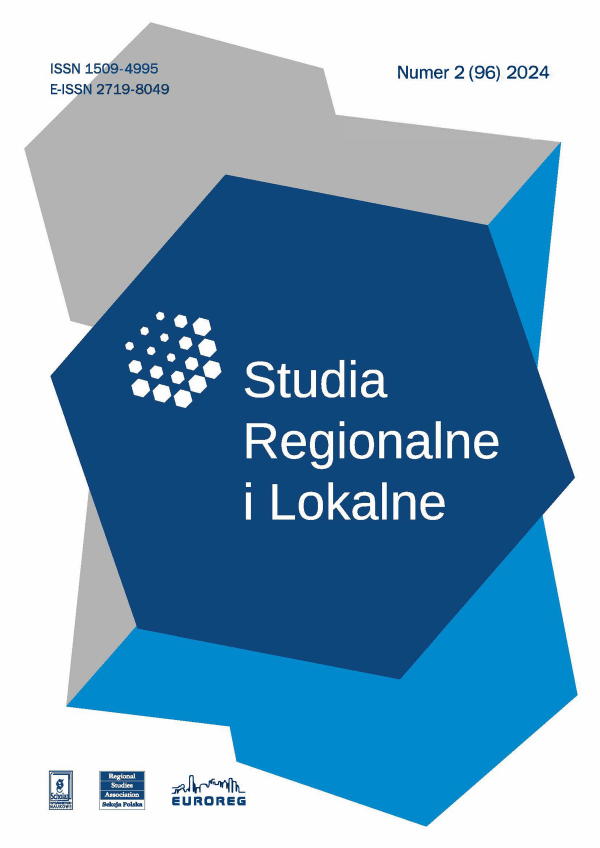Opublikowano w numerze
2(96)/2024

- Patrícia Horváth, Anikó Tompos, Petra KecskésExploring the Spatial Distribution and Location Choice of Companies in a Hungarian Agglomeration[więcej]
- Michał Gzik, Marcin FrenkelCity Diplomacy Practices Towards China and the United States in the Western Balkans. Examples from Croatian and Slovenian Cities[więcej]
- Stanislav KonečnýHierarchia interesów jako kryterium podejmowania decyzji w sytuacji NIMBY[więcej]
- Aleksandra NowakowskaKoncepcja kapitału terytorialnego – rewolucja czy ewolucja spojrzenia na rozwój lokalny i regionalny[więcej]
- Andrzej Cieślik, Tomasz MisiakWpływ powiązań międzysektorowych na dynamikę wzrostu kapitału ludzkiego na poziomie regionów NUTS II w Polsce[więcej]
- Dominik Staśkiewicz, Oliwia Haręża, Urszula Protyńska, Michał MałyszKarkonoska Kolej Miejska w obliczu wyzwań mobilności aglomeracji Jeleniej Góry[więcej]
- Maciej J. NowakVincent Nadin, Giancarlo Cotella, Peter Schmitt (red.) (2024). Spatial Planning Systems in Europe: Comparison and Trajectories. Elgar Studies in Planning Theory, Policy and Practice. Cheltenham, UK, Northampton, USA: Edward Elgar Publishing[więcej]


